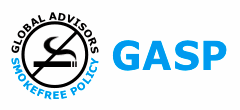North Carolina Housing Finance Agency requires 100% smokefree policy for new and renovated affordable housing.
Posted on
According to the new guideline, property owners must prohibit smoking in all indoor common areas, individual living areas (including patios and balconies), and within 25 feet of doorways or ventilation intakes. A non-smoking clause must also be included in the lease for each household.
As of 2014, eight other states gave incentives in their QAPs to promote smoke -free housing. North Carolina follows Maine as the second state in the nation to include smoke-free policies as a threshold requirement for properties to receive tax credits.
The North Carolina Division of Public Health estimates that at least 28% of the state’s affordable housing properties currently provide a smoke-free environment for their residents and employees. The new change in the guidelines will not impact current housing stock, but will apply to housing built or renovated in the future using tax credits.
“In places where people must share the air, such as multi-unit apartment buildings, it makes sense to guarantee safe, smoke-free air for everyone,” said Pam Seamans, Executive Director of the North Carolina Alliance for Health. “We know that reducing exposure to second-hand smoke can reduce the incidence of heart disease, cancer and a variety of lung and pulmonary conditions.
